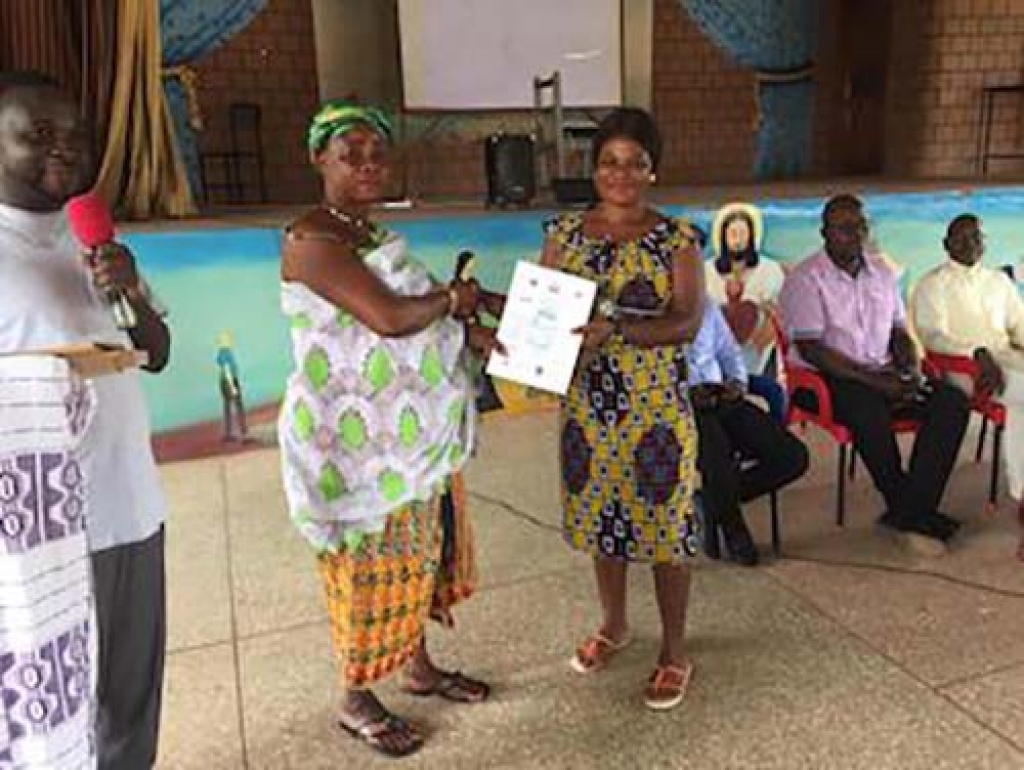GHANA: New organic farming courses have trained 93 vulnerable youth and returning migrants since 2016


GHANA
(MissionNewswire) Salesian missionaries recently awarded diplomas to students who completed organic farming courses at the Salesian Agricultural School in Sunyani, Ghana. The first Salesian agriculture course in Ghana took place in 2016. Two other courses have been held annually. To date, 93 students have been trained. Many of these students are returning migrants who have decided to stay in the country, learn a skill and trade, and contribute back to their community.
Students taking the courses have learned to grow organically and to use greenhouses. These solutions increase the harvest since crops can be cultivated even during the dry season, and the annual distribution of produce can be better managed. Greenhouse crops are also an excellent deterrent against deforestation and climate change, as they do not need much space and do not require forests to be cut down to cultivate the land.
The organic farming courses are only the first step in empowering vulnerable youth and returning migrants. Four of the best students who recently graduated from the course benefit from the development fund that was set up just after the conclusion of the last course. Part of this development fund, known as the Fund for Agriculture and Tourism Development, is completely dedicated to microcredit, enabling startup funds for Ghanaian farmers.
The courses are part of the efforts to stop the flow of migrants and prevent human trafficking. The goal is to keep more youth in the country where they can earn a living safely. Salesian missionaries, in collaboration with the Salesian-run International Volunteer Service for Development (VIS) volunteers, created a Stop Human Trafficking campaign that highlights the risks of migrating and human trafficking and works to provide local education and workforce development to help youth remain in their own communities. Migrating to foreign lands in search of work and better opportunities is when youth are most at risk of trafficking.
“Thanks to vocational training courses in eco-sustainable agriculture in Ghana, many young people now have the opportunity to learn a trade, create employment, and at the same time, combat trafficking,” says Father Mark Hyde, director of Salesian Missions, the U.S. development arm of the Salesian of Don Bosco. “Small-scale farms in Ghana often suffer from a lack of infrastructure and equipment, both of which are needed to shift from subsistence farming to more modern commercial farming. Modern methods and new agriculture training are helping farmers gain a more stable living.”
The first Salesian missionaries in Ghana arrived in 1992 in the city of Sunyani and soon became known for their educational work, especially for at-risk children and victims of trafficking. Children face extensive hardships ranging from being exploited in child labor to being sold by their relatives, often to pay off a debt. In the Lake Volta region, it is estimated that there are approximately 21,000 children and teen laborers who have been prevented from attending school.
While Ghana’s economy continues to improve, nearly 45 percent of the population lives on less than $1 a day, according to UNICEF. Rural poverty remains widespread in the dry savannah region that covers roughly two-thirds of Ghana’s northern territory.
###
Sources:
ANS Photo (usage permissions and guidelines must be requested from ANS)
ANS – Ghana – Return home, return to the land
UNICEF – Ghana
Salesian Missions – Ghana




